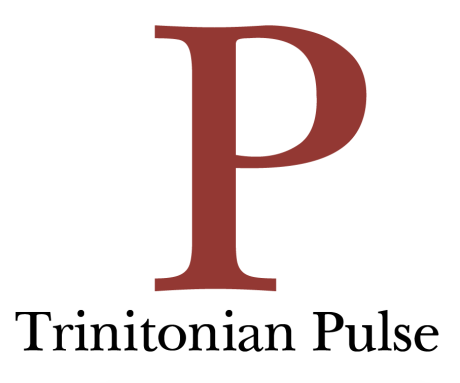Heteronormativity, or the belief that heterosexuality is the only sexuality and that all individuals fit into precise gender categories, allows many to reach their adult life without ever noticing the innacuracies of this worldview. The absence of discussions about the effect of heteronormativity on LGBTQIA+ individuals allows for this community’s challenges to continue uncontested.
Organizations on campus like Trinity Diversity Committee (TUDC) seek to combat these internalized misnomers, developing dialogues like their first one on Heteronormativity and the Orlando Shooting to foster conversations about difficult topics. Rita Urquijo-Ruiz from the Modern languages and literatures department and Lauryn Farris, a local San Antonian transgender activist, shared their experiences after the massacre this summer and discussed challenges to the queer community.
Sophomore Abigail Wharton anticipated the first diversity dialogue, as she is the secretary of PRIDE and facilitates communication between the officers and its members.
“I thought it was really impactful and was really excited that the conversation went as well as it did,” Wharton said.
After speeches by Ruiz and Farris, Wharton’s small group focused primarily on initial reactions to Orlando and what could be done to continue this conversation about Orlando in the future.
“I really loved the way the full group ended talking about living out loud. I think that was something that really keyed in with me, the idea of living unapologetically present.”
Straight ally and PRIDE member Will Farner remembers being involved with TUDC and PRIDE events throughout his first two years.
“It was cool to hear from different groups of students, to get a feel for what everyone’s reactions to Orlando and heteronormativity in general were,” Farner said.
Farner found the issue of intersectionality to be one of the biggest takeaways from the dialogue. After attending SA Pride and realizing how profoundly Orlando affected the prominent queer Latinx community locally.
“As a white straight cis guy it’s hard to be aware of every avenue that I’m privileged in,” said Farner.
Recognizing the ways people can be privileged in one way and underprivileged in another remains a constant challenge, Farner looks forward to future dialogues.
“When I come to events like these I learn something new so I keep on showing up and keep on learning things,” Farner said.
Sophomore political science major Hunter Sosby serves as TUDC’s Public Relation chair, developing ideas for dialogues such as these and marketing them to the larger Trinity community.
“I think the official count we had was 47 people, including the speakers, which was awesome. It was definitely one of the best turnouts we’ve ever had,” Sosby said.
Sosby, like Ruiz and many in attendance of the dialogue, initially felt numb after the news of the Pulse nightclub shooting broke.
“Later, I went to a vigil for the victims and they read out the stories of the victims, and that’s when it really started to hit me. What I really took from the dialogue was the idea of changing hearts, not minds. I think so often it’s really easy to antagonize the other side for any issue and just not talk to them,” Sosby said.
The next Diversity Dialogue will be highlighting issues of police brutality, particularly cases like the Alton Sterling Shooting and Anti-Black police practices. A collaboration between the Black Student Union and Black Male Leadership Initiative, the conversation will cover the different ways that varying messages of black criminality have incited fear. Keep checking the LeeRoy for more specific information.







